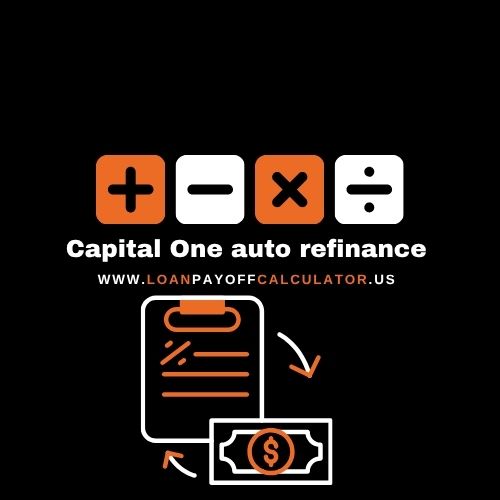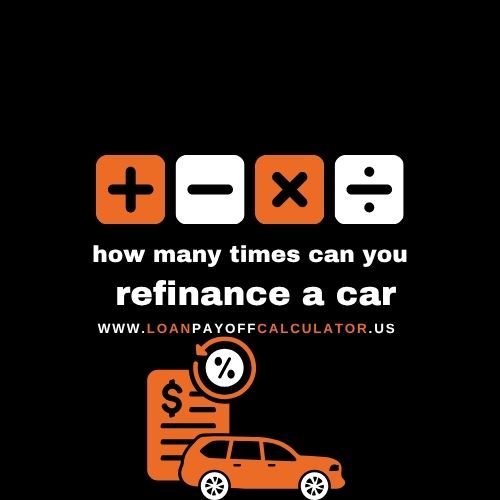Capital One Auto Refinance – Rates, Requirements & How It Works
Capital One is one of the most recognized names in U.S. auto lending and auto refinance. If you’re looking to lower your APR, reduce your monthly payment, or change your loan term, refinancing with Capital One could be an option worth comparing.
In this guide, we’ll walk through exactly how Capital One auto refinance works—step by step—what documents you’ll need, typical fees and eligibility requirements, and how it stacks up against banks, credit unions, and online lenders.
If you’re considering a Capital One auto refinance, here’s everything you need to know to compare rates confidently and avoid common pitfalls.
refinance car loan capital one
What Is Capital One Auto Refinance?
Auto refinancing simply means replacing your existing car loan with a new one that offers better terms—usually a lower interest rate (APR), a different repayment period, or both. With Capital One refinance, the goal is to help drivers save money or restructure their debt in a way that better fits their budget.
For example, instead of continuing with a loan at 8% APR, you might qualify with Capital One for 6% APR. Over a five-year loan, that difference could save you hundreds or even thousands of dollars in interest charges.
Capital One’s refinancing program typically allows loan amounts from around $7,500 up to $50,000, with restrictions on vehicle age (usually no older than 10–12 years) and mileage (often capped at 120,000 miles).
Capital One Auto Refinance: Rates & Terms
Auto refinance APRs vary by credit profile, vehicle, state, and loan term. As a directional guide, borrowers with strong credit often see
lower rates while fair credit pays more. Capital One’s offers are typically competitive with the wider market, but you should compare at least
2–3 quotes before deciding.
Illustrative APR Range (Capital One)
~6.99% – 12% for well-qualified borrowers; higher for fair/limited credit.
(Your actual rate depends on credit, LTV, term length, vehicle age/miles.)
Typical Market Range
Broadly comparable for banks/credit unions in the same credit tiers; always check current offers and any discounts (auto-pay, relationship).
| Credit Tier (Example) | Loan Amount | Term | Illustrative APR | Notes |
|---|---|---|---|---|
| Excellent (720+) | $15k–$40k | 36–60 mo | ~6.99%–8.49% | Best rates, shorter terms |
| Good (660–719) | $10k–$35k | 48–72 mo | ~8.5%–11% | Common approval band |
| Fair (600–659) | $7.5k–$25k | 60–72 mo | ~11%–15% | Higher LTV scrutiny |
| Limited / Thin | Varies | Up to 72 mo | Varies (higher) | Co-signer may help |
- Terms: common lengths are 36, 48, 60, and 72 months. Shorter terms usually mean lower APR and less total interest.
- Loan amounts: lender caps apply; older/high-mileage vehicles may qualify for lower max amounts or shorter terms.
- Discounts: auto-pay or relationship banking can shave a fraction off your APR—ask before you apply.
These APR bands are illustrative for educational purposes only. Always check Capital One’s current offers and your personalized rate.
Capital One Auto Refinance: Eligibility & Requirements
Qualification depends on your credit profile, vehicle, and existing loan. Here’s what lenders (including Capital One) commonly look for:
Credit Score
- Typically 580+ to qualify; stronger chances and better APRs above 650.
- Clean on-time payment history in the last 6–12 months helps.
- Limited recent hard inquiries preferred.
Vehicle Requirements
- Model year: typically not older than 10–12 years.
- Mileage: commonly capped around ≤ 120,000 miles.
- Condition/title: clean title; no salvaged/rebuilt vehicles.
Documents You’ll Need
- Government ID & proof of residency.
- Proof of income (pay stubs, W-2/1099) and employment.
- Current loan statement & payoff amount.
- Vehicle details (VIN, mileage, insurance).
Other Factors
- LTV (loan-to-value): lower is better; negative equity can limit approval.
- DTI (debt-to-income): reasonable ratios improve odds.
- Seasoning: some lenders prefer the loan to be at least 3–6 months old.
✅ Tip: Start with a pre-qualification (soft pull) to see potential rates without impacting your credit. If the offers look good, proceed to a full application (hard inquiry).
Eligibility details vary by lender and state. Treat these as general guidelines and always confirm Capital One’s current criteria before applying.
Capital One Auto Refinance: Application Process
The refinance application with Capital One is designed to be straightforward. Here’s what to expect from start to finish:
- Check eligibility online: Capital One lets you pre-qualify with a soft pull that won’t affect your credit score.
- Submit documents: Provide proof of income, ID, car details (VIN, mileage), and your current loan statement.
- Loan approval & new terms: If approved, you’ll see your new APR, monthly payment, and payoff schedule.
- Payoff of old lender: Capital One pays off your existing loan directly, and you start making payments to them.
✅ Want to explore refinancing options beyond Capital One? Try our free
Loan Refinance Calculator
to compare potential savings instantly.
Example Calculation: Capital One Auto Refinance Savings
Let’s see how refinancing can impact your payments and interest costs:
| Loan Scenario | APR | Monthly Payment | Total Interest |
|---|---|---|---|
| Current Loan – $20,000 / 60 months | 7% | $396 | ≈ $3,760 |
| Capital One Refinance – $20,000 / 60 months | 5% | $377 | ≈ $2,620 |
✅ By refinancing with Capital One, you could save around $1,140 in total interest while lowering your monthly payment.
Want to run your own numbers? Try our free
Loan Refinance Calculator
to instantly compare savings on your car loan.
capital one loan savings
Pros & Cons of Capital One Auto Refinance
✅ Pros
- Quick & easy online application.
- Competitive refinance rates compared to other lenders.
- Soft credit check at pre-qualification stage (no score impact).
❌ Cons
- Not all vehicles qualify (age & mileage limits apply).
- Availability varies by state.
- Borrowers with lower credit may face higher APRs.
Alternatives to Capital One Auto Refinance
While Capital One auto refinance is a popular option, it’s not the only path. Depending on your credit profile and goals, you may find better deals with these alternatives:
- Credit Unions – Often provide lower APRs and more flexible terms for members.
- Online Lenders (e.g., LightStream, Caribou) – Fast applications and competitive online-only rates.
- Current Bank Negotiation – Sometimes your existing lender will match or beat external offers if you ask.
💡 Tip: Always compare at least 2–3 lenders side by side before refinancing. Small APR differences can save you hundreds over the loan term.
Try Our Exclusive Loan Tools — Built for Smarter Payoff
These free, premium-grade calculators were designed for real borrowers like you.
Plan faster student loan payoff, reduce interest, and compare repayment strategies with ease.
Loan Payoff Calculator →
Loan Interest Calculator
Loan Comparison Calculator
Loan Refinance Calculator
No guesswork. No hidden fees. Just the smartest way to manage any loan payoff.
Capital One Auto Refinance – FAQs
1. What credit score do I need for Capital One auto refinance?
Typically, a minimum credit score of 580 is required, but having 650+ significantly improves your chances for better APR rates.
2. How long does the process take?
Most approvals take a few business days, though submitting documents quickly can shorten the timeline.
3. Does refinancing with Capital One hurt credit?
Only a small, temporary dip may occur due to the hard inquiry. Long-term, consistent payments improve your credit.
4. Are there fees or penalties?
Capital One generally does not charge prepayment penalties, but closing costs or fees may vary by loan type.
5. Is Capital One the best place to refinance?
It’s competitive, but always compare with credit unions and online lenders to make sure you’re getting the lowest APR.
Conclusion: Is Capital One Auto Refinance Right for You?
Capital One is a strong option for auto loan refinancing thanks to its competitive rates and easy online process.
Still, it’s important to compare offers with credit unions, online lenders, and your current bank.
Always factor in fees, loan terms, and how refinancing impacts your total interest.
🔑 Want to see how refinancing really changes your payments?
- Loan Refinance Calculator – Estimate savings with lower APRs.
- Loan Comparison Calculator – Compare multiple offers side by side.
📖 For official guidance, visit the
CFPB Auto Loans Guide
.







